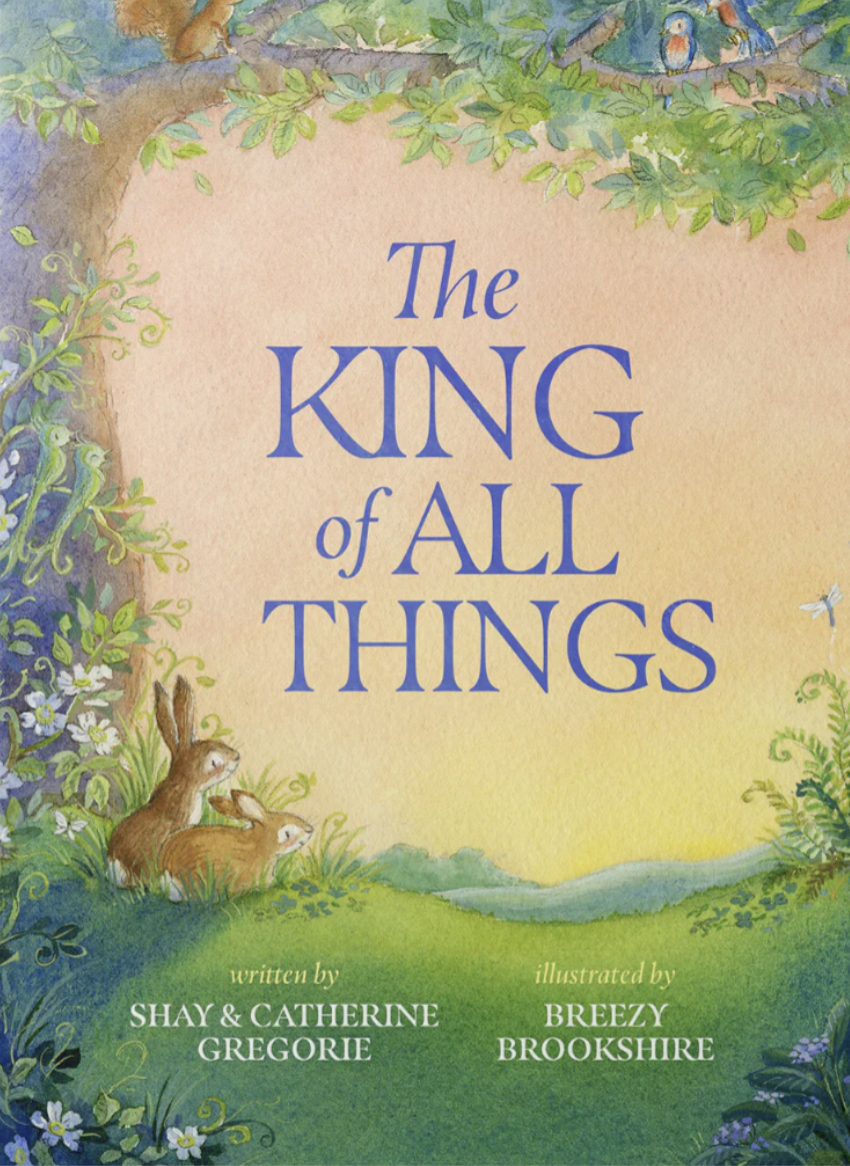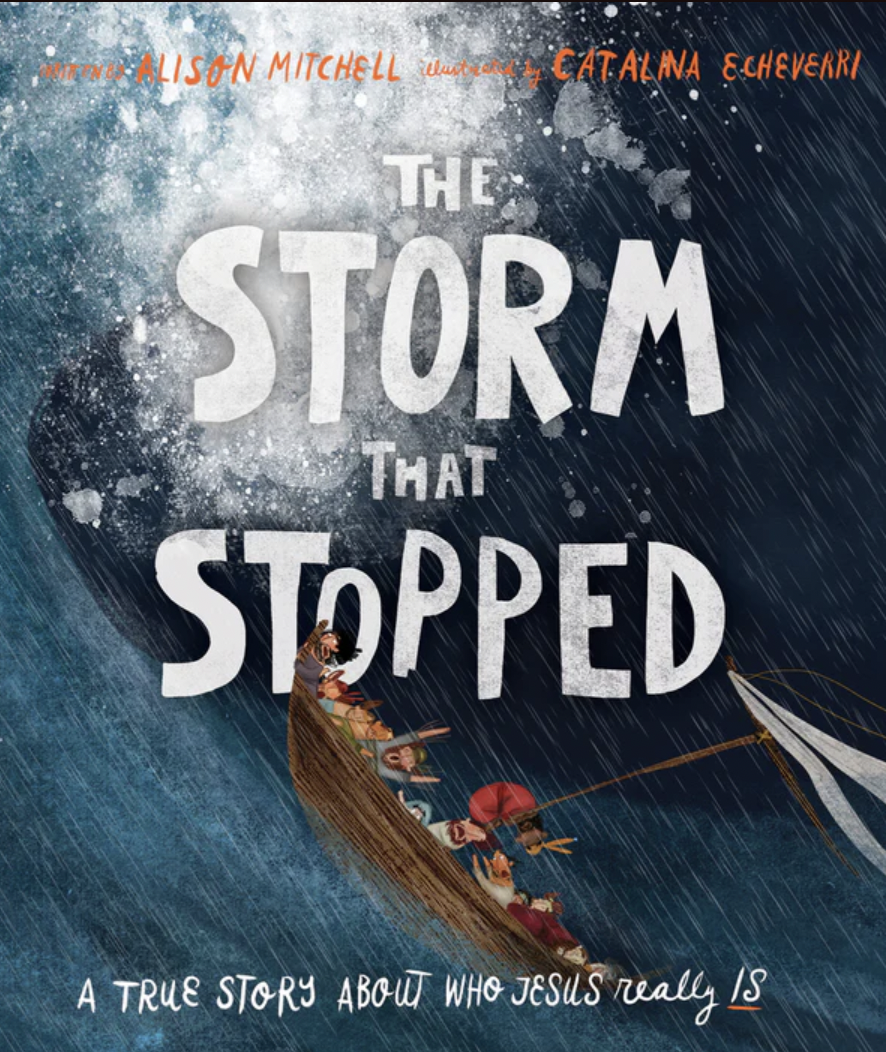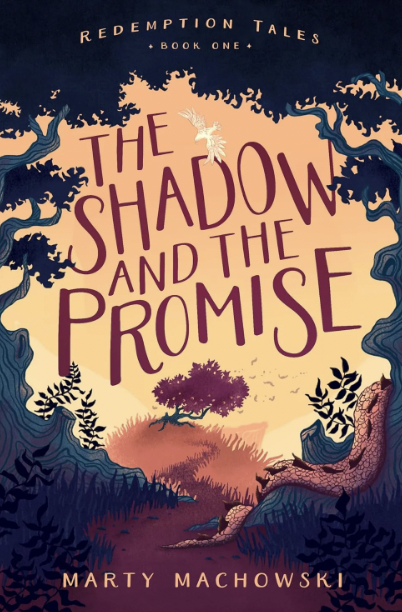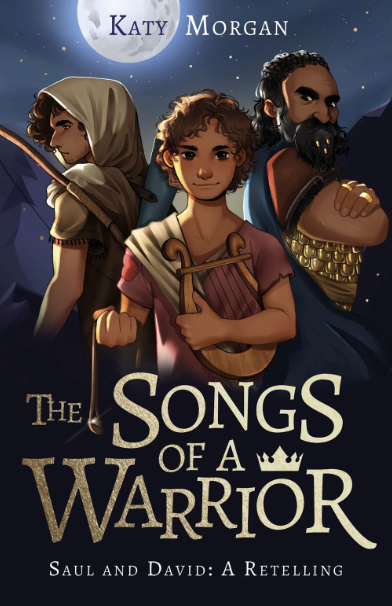What if words could slip into your bloodstream? What if they found a home among the fighting white blood cells and the silent plasma? And what if they began to do things there, in the depths of your body? Could any words infiltrate the synapses in the brain, permeate thoughts and intentions, to not only change you but to see you as you really are?
One kind can, “For the word of God is living and active, sharper than any two-edged sword, piercing to the division of soul and of spirit, of joints and of marrow, and discerning the thoughts and intentions of the heart. And no creature is hidden from his sight, but all are naked and exposed to the eyes of him to whom we must give account” (Heb. 4:12–13). God’s words can do far more than we imagine. And yet in the power and mystery of God—who bodies forth the world in speech and upholds it by the word of his power (Heb. 1:3)—the imagination plays a vital role in our receiving and applying God’s words. This means that as parents, we have to ask our children to imagine the Bible.
Can You Imagine the Bible?
“Do you know what the Bible says?” “Do you know what this passage means?” “Can you apply this passage to your life?” When it comes to our kids and the Bible, these are our go-to questions. We want our kids to know the Bible—to understand its grand narrative, its patterns and symbols, its meaning rooted in Jesus Christ, and their place in its pages. And, with that desire for them to know and understand, is the prayer that they will apply Scripture by God’s Spirit to their own lives as they mature in (God willing) a relationship with him. Knowing. Understanding. Applying. But what about imagining? Do we want our kids to imagine the Bible?
That can seem secondary or downright dangerous for some of us, since imagination could imply adding things to the Bible, and we know we can’t add or subtract to God’s word (Deut. 4:2). Getting the message and the meaning, the gospel and the grace—those things are primary. But there is also a pivotal connection between imagination and faith. As the poet Malcolm Guite writes, the imagination “can remove the film of familiarity from some of the deepest mysteries of our faith” (Lifting the Veil, 29)? So it is worth our asking the question, “Can you imagine the Bible?” Not just know or understand or apply, but see it with fresh eyes inside the kingdom of your mind.
What Imaginations Do
We need to start by looking again at what our imaginations actually do. Contrary to popular assumption, we don’t only use our imagination to come up with an idea for the next great sci-fi novel or the latest use of AI. Our imagination is our ability to represent things in our mind. According to the Stanford Encyclopedia of Philosophy, “To imagine is to represent without aiming at things as they actually, presently, and subjectively are. One can use imagination to represent possibilities other than the actual, to represent times other than the present, and to represent perspectives other than one’s own.”
Doesn’t that sound like something we have to use on every page of Scripture?— “To represent times other than the present, and to represent perspectives other than one’s own”? Abraham, David, Jesus, John, and Paul were in other times. They also convey perspectives that are not our own. By simply hearing the stories of Scripture, our kids are already imagining the Bible. They are mentally representing other times and perspectives. The question, then, isn’t whether they should do this; it’s how they can do it better, with more Spirit-led passion and fidelity to God’s words.
That’s why Malcolm Guite is keen to remind readers of just how critical our imagination is: “The power of imagination,” he writes, “does not just come into play when we are making up stories, it is the imagination which allows us to grasp the whole, the meaning, the pattern in what we perceive, to draw lines that connect the dots, to glimpse the pattern that suddenly makes sense of disparate and apparently random things. It is by the forming and perceiving power of the imagination that the constant stream of data flowing into us through our senses is shaped into a tree, a mountain, a sunset, the face of our beloved” (Lifting the Veil, 12–13). Without our imagination, we have no access to meaning and her precious children: love, beauty, hope, and joy.
Imagining the Bible
Let’s consider an example. The parables of Jesus are constant calls to imagine. We often treat parables as creative “husks” that contain a kernel of information we need to extract, but they are much more than that. They are opportunities to enter into worlds through words, to see letters as framing doors we can enter. Look at what Jesus tells his disciples before his coming death in Jerusalem:
And Jesus answered them, “The hour has come for the Son of Man to be glorified. Truly, truly, I say to you, unless a grain of wheat falls into the earth and dies, it remains alone; but if it dies, it bears much fruit. Whoever loves his life loses it, and whoever hates his life in this world will keep it for eternal life. If anyone serves me, he must follow me; and where I am, there will my servant be also. If anyone serves me, the Father will honor him” (John 12:23–26).
This is not only a prediction of Jesus’s coming death and the necessity of his atoning sacrifice. It is not only a call for Christians to take up their cross and follow Jesus. It is more. It is an invitation to imagine the life of a seed, because through that imagining, we see more of Jesus’s meaning, more of his beauty, more of his soul-enriching hope.
So, we might say to our children as we read this passage, Imagine: You are set high on a rod of wheat, drifting lazily in the sun and wind. The breeze caresses your outer shell, shouldering you back and forth. You love these days, these cycles of light, water, and darkness. And yet the ground beneath you whispers of a terrifying difference. If you should fall there, what would happen, in that dark place beneath the soil, where light is uninvited? Does it not scream of loneliness and isolation?
Ah, but then Jesus tells your seed-self something you desperately need to hear. You think that it’s lonely down there, in the darkened dirt. But Jesus says you’re misunderstanding. Staying here atop this stalk of sun-soaked wheat, is isolating. Up here you are by yourself. Down there in the earth is where the company is. Down there is where new life bursts forth. “Unless you fall into the earth and die, as I will do for you,” Jesus says. “You will remain alone; but if you die with me, in me, you will bear much fruit.” In Jesus, our seed-selves fall down into a holy gathering.
I can’t express how comforting this passage was to me as someone who lost his father to cancer when I was a teenager. I had such a shaking fear that my father was going into dark and silent loneliness, a separation from those he knew and loved. But he wasn’t. Jesus tells me so. He was going into a community, or as Malcolm Guite describes in a poem, a “crowded underground,” a “dark fruition.” He was going to a great family of faith, all gloriously kept by his sovereign seed-loving Savior. And I can testify already that my father’s death has borne much fruit in me, and in those who knew him. As long as he remained a seed on the top of that wheat stalk, he was alone. But now? Now he lives among the fruit bearers, fixed to the true vine (John 15:1). The life-giving Savior cares for every one of his fallen seeds. And he knows exactly what it’s like to fall from the heights and into the depths.
What Captures
That’s only one example. So many of us try to extract the kernels of information from Scripture, but kernels, like seeds, are embedded in the center of fruit. There is joy and wonder and worship to be found in slowly eating our way to the core. We don’t just have to swallow God’s words like pills. We can chew them. And they taste good, sweeter than honey that drips from its bee-borne comb (Ps. 119:103).
Let me end by reminding parents (myself as much as others) of something we easily forget: If Scripture doesn’t capture the hearts and minds of our children, something else will. The world is full of things grasping at our kids’ imaginations. If we don’t imagine the Bible with them, they will imagine other things. And our imaginations always lead us places. Where is yours leading you? Where are your kids’ imaginations leading them?
Read the Bible with your kids. Help them know it, understand it, and apply it. But don’t overlook their imagination and the worlds God offers to them in its pages. Those worlds, after all, are also part of our world. Ask your children questions that open their senses to the spectacular things around them, for it’s that same world that the characters of the Bible inhabit—a world with fish and green grass and fresh bread. Here are some examples.
Taste: Do you think they put salt on the fish that they cooked for Jesus after he rose from the dead? (Luke 24:42)
Touch: How does your body feel when you lay down in green grass? (Ps. 23:2)
See: What color do you think the horses and chariots of fire were? Do you think Elisha’s servant could see the faces of the horses? (2 Kgs. 6:17–20)
Smell: Do you think Jesus gave his disciples fresh bread when he broke it and told them it was his body? How do you think the room smelled as they gathered together? (Matt. 26:26)
Hear: Do you think the Israelites’ shouting hurt the ears of the people inside Jericho? (Josh. 6:20)
Questions that address the senses can bring out imaginative threads. Our children will do much of the weaving themselves. But we can get them started with questions like these.
The Bible is not only meant to be understood; it’s meant to be eaten. And in that eating, they will taste so much more of God’s beauty, grace, and kindness. Imagine the Bible. Teach your kids to imagine the Bible. And you will both be more excited about God’s living word because of it.
........
Featured Resources
Check out these recommendations from the Westminster Kids' Team of books with beautiful illustrations and vivid writing that will help kids imagine the stories of Scripture.

"Father in heaven, you’re the King of All Things—/ Creation springs from the songs you sing!" The King of All Things is a celebratory prayer that helps the youngest hearts in your home to love the goodness of the Great King and revel in His kingship over all things. This beautiful board book was written by Shay and Catherine Gregorie (parents of 9 children!) and illustrated by the immensely talented Breezy Brookshire.

The award-winning Read Aloud Bible Stories series has delighted children, parents, and teachers for decades. Written by Ella K. Lindvall and illustrated by Kent Puckett, these timeless stories of the Bible are retold in clear, simple language children will enjoy and understand. And parents will appreciate the care taken to simplify the stories without sacrificing any accuracy.

Who do you trust when the panic-o-meter enters the red-zone? When big waves started pouring into their boat Jesus' disciples thought they were done for. Then the Son of God showed them something they would never forget. Based on Mark 4:35-41, this fun to read story features incredible illustrations, and awesome truth.

The Shadow and the Promise by bestselling author Marty Machowski follows the adventures of the animals who witness the events of Genesis and Exodus unfold before them. Join badgers in the Garden of Eden, an array of animals in the Ark, groundhogs at Babel, Abraham's donkey, sheep from Joseph's herd, the cats in the palace in Egypt, and a dog and oxen present at the Passover.

In this imaginative yet biblically faithful book, readers will find themselves immersed in the hearts and minds of the key players as they experience battles, intrigue, plots, betrayal, love and friendship. This resource is a great way to help kids aged 8-13 engage with God's word. They'll be left thinking about what it means to trust God and realizing that only Jesus can really be the king God's people need.

